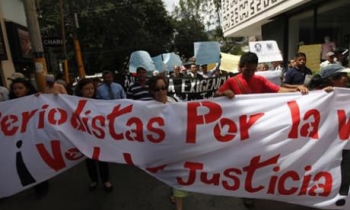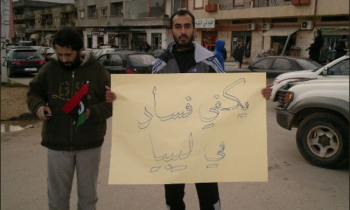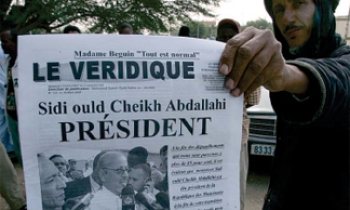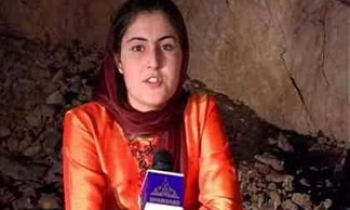I wholly sympathise with those anguished editors, who have demanded that the PoMo Muslims, my acronym for poor and moderate Muslims, ought to speak up more often. However, the PoMo Muslims are so called because of the poverty of what they have left to say.
Besides they are easily outnumbered by the genuine PoMo Muslims. On the other hand, for the last 25 years, more particularly in the last five, they have climbed the podium so many times that their muscles ache and their tongues freeze.
Condemn 9/11 they were told, condemn suicide bombing, condemn Islamic terrorism, condemn Imrana fatwa, condemn Gudiya fatwa, condemn Taliban, condemn cartoon protests, give the buggers a break, I say.
Will you flog an ass and turn it into a horse? The insatiable urge of the modern public to invite PoMos to demonstrate their self-hatred will only make extremists of them I say.
Besides don’t moderate Muslims have occupations other than condemning atrocities in the name of Islam? Aren’t they scientists, executives and butchers too! How many times will they take time out to say look here we are good, those guys are bad? And should PoMos only comment on Muslim affairs?
Why should I be forced to engage with bunches of people, who find nothing better to do than to go around destroying buildings and sport in incendiary and juvenile acts. It is not my problem, mate, I didn’t incite them, I didn’t invite them and if you think that my condemnation will make them go away you are living in a fool’s world.
Even Gandhi couldn’t condemn the revolutionary terrorists, as they are still called in our textbooks, like Bhagat Singh out of existence. The more forcibly you make this bloody problem the exclusive business of the PoMos, the more you wash your hands off it and that would be very gauche, because it ain’t their problem alone.
On the other hand, in this country what we need is not so much more of freedom of expression and criticism but the willingness to defend those that already exist.
Have you heard of Vinod Jose and of Free Press? If you haven’t then it is time you heard of him because there is no free press in this country without the Free Press and the Free Press, unfortunately, is no more.
Free Press was a Malyali monthly magazine, put together and printed in Delhi by a group of journalism students led by Vinod Jose. Jose used to be with the Indian Express and was at the Parliament when the December 13 attack took place.
When his firsthand understanding of events and the subsequent police investigations and the media coverage seemed at odds with each other he found no outlet to express his views or to defend SAR Geelani, the Delhi University lecturer who was recently freed by the Supreme Court.
Along with a group of recently-graduated journalism students Jose started a Malyali monthly called Free Press.
The first issue, in January 2004, featured Geelani on its cover and RSS workers immediately destroyed the newsstand copies of Free Press in the Mayur Vihar area in Delhi. The vendors were warned against selling Free Press.
Delhi distributors backed off and they had to distribute the magazines through the Diaspora chips and bakery-items distributors, who had access to all the south Indian provision shops.
The next issue was even more radical – a cover story on Reliance and the black economy that systematically uncovered how Reliance and scores of benami companies associated with it had palmed off thousands of crores from state banks.
Relying on the extensive Malyali Diaspora networks, ranging from West Africa to Dubai and South East Asia, Free Press listed names of companies and accounts, covered its tracks by getting many renowned economists to comment on it and questioned why a book on Reliance Polyester Prince, written by Australian journalist Hamish McDonald, was not available in India for the last 10 years.
The Reliance issue of Free Press sold over one lakh copies. Other investigative stories included one on Intel Microsoft project in Kerala to impart computer education that had been riddled with corruption.
The surveillance on Free Press was mounted from the word go. Bundles of magazine on their way to Kerala would be picked up by the intelligence agencies.
Increasingly no press in Delhi was ready to print the magazine and for some time it was printed from a press in Meerut.
The newsprint suppliers too refused to supply newsprint under pressure from the state agencies.
Distributors of the magazine as well as the Kerala-based reporters were harassed and pressurised to leave the Free Press. Jose’s family and acquaintances too were questioned by the police. An attempt on Jose’s life was made in mid-October that year.
The Interstate wing of the special police wanted to know why he was writing on problematic issues.’
Employing some 20 people and with a circulation of some 62,000 copies at its peak, which means a readership 300 times of that number, Jose was forced to shut down the magazine because of covert repression by the state.
He still gets hundreds of letters. Readers are ready to pledge their salaries to help him run it. He has the money, he has the readership but still he can’t run the monthly
Let us find out why his freedom of expression was denied – you can reach him at thirumelli@yahoo.com









